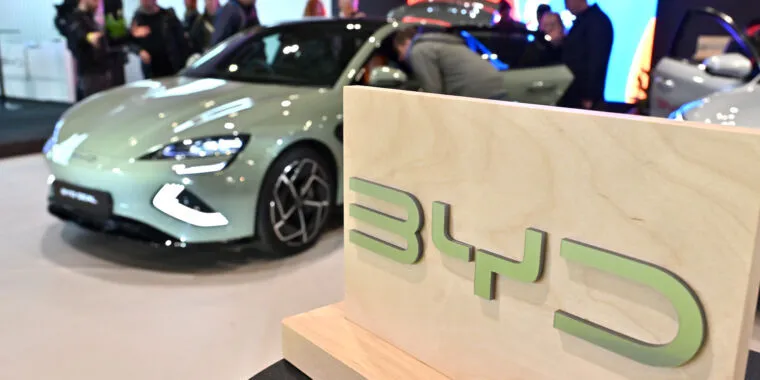Chinese EV makers won’t get subsidies from Mexico after US pressure
Chinese EV makers won’t get subsidies from Mexico after US pressure

Chinese EV makers won’t get subsidies from Mexico after US pressure

Chinese EV makers won’t get subsidies from Mexico after US pressure

Chinese EV makers won’t get subsidies from Mexico after US pressure

I fucking love freedom and the free market 🦅🥲
To be fair, this is denying government subsidies, which is more of a free market than giving subsidies. This is especially true for Chinese companies, since they are by definition state-owned.
This is US car companies using their paid off politicians to make the US pressure another country into not making a deal that would increase competition in that market to their detriment .That's many layers of fuckery deeper.
Is it that if they're just blocking the vehicles that are subsidized? Let's see what these EVs sell for without the Chinese government paying half the production costs.
If they're blocking subsidized vehicles they'd have to block US companies
The subsidies in the US apply to companies of any nationality. The subsidies from China only cover companies controlled by the Chinese government.
Everything you said is true, except you are missing the context that this is for-profit US car companies not wanting to compete against state-owned car manufacturers who get all of their money from China and can take huge losses in order to outsell for-profit, private entities.
Except every other company gets subsidies, so this is specific and not "fait market".
The current fair market for EV manufacturers includes getting a buttload of incentives from governments.
There can be no market that is both "free" and "fair"
For a market to be fair there needs to be constraints in the right places
In this case the lack of constraints sufficiently restricting the ability for companies to pressure (read as bribe) politicians to push for a lack of subsides for specific sectors of an industry
The key word there is "company." Chinese car manufacturers are not companies, they are the state-owned entities.
These vehicles would also be eligible for those subsidies if they meet the criteria of being assembled from mostly North American parts. You're comparing subsidies available for every company meeting certain criteria (even these Chinese companies) versus subsidies available only to those companies owned by the Chinese government.